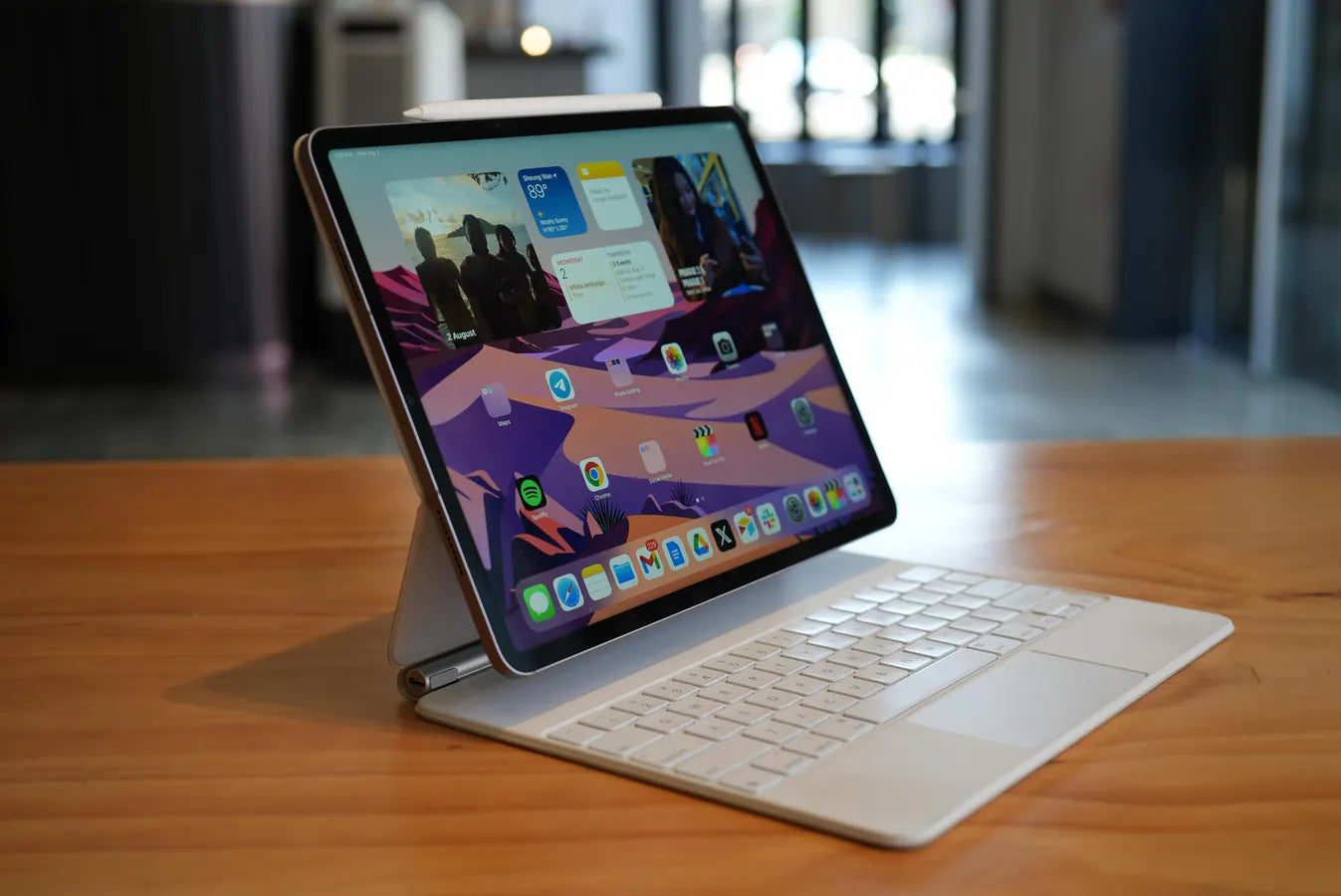
Laptops vs. Tablets: Which is Better for Professionals on the Move?
For professionals who are constantly on the move, choosing between laptops and tablets is a crucial decision. Both options offer significant advantages, but it’s important to understand which one best suits your work style.
Power and multitasking capability: The advantage of laptops
If your work requires intensive multitasking or running high-capacity software like video editing programs (Premiere Pro, Final Cut) or development tools (Visual Studio, MATLAB), a laptop is the best option. Devices like the MacBook Pro or Dell XPS not only offer the latest processors, but also superior graphics capabilities compared to most tablets. With more RAM and storage space, they are perfect for running multiple applications simultaneously without affecting performance.
Moreover, a laptop provides a more traditional work experience. The full physical keyboard and touchpad or mouse allow for faster and more precise interaction with the system, making them ideal for tasks that require continuous data input, such as writing reports, analyzing data, or coding.
Portability and versatility: The realm of tablets
On the other hand, tablets excel in their extreme portability and versatility. Devices like the iPad Pro or Microsoft Surface Pro can function as a full-fledged computer thanks to accessories like detachable keyboards or stylus pens. Their lightweight and compact design makes them ideal companions for those who frequently travel or need to quickly take notes during meetings.
Additionally, tablets offer a superior multimedia experience. The integrated cameras are often of higher quality, which is useful for video calls or capturing content on the go. They are also perfect for content consumption, such as reading documents, watching videos, or giving quick presentations.
Battery life and connectivity
In terms of battery life, tablets tend to offer longer durations compared to laptops. This is especially useful for those working long hours without access to a power outlet. However, newer laptops have also improved in this regard, with models like the MacBook Air with M1 chip lasting an entire workday.
When it comes to connectivity, laptops have the edge. Tablet port options are often limited (with only one USB-C port in many cases), whereas laptops offer more options like HDMI, USB-A, and SD card slots, which is crucial for those needing to connect multiple devices or peripherals.
Conclusion
If your work relies on high power tasks, such as multimedia editing or software development, a laptop is the obvious choice. But if you value extreme portability and your day-to-day work involves note-taking, presenting, or content consumption, a tablet could be your best tool. Both options have their strengths, so the choice depends on the specific needs of your profession.






